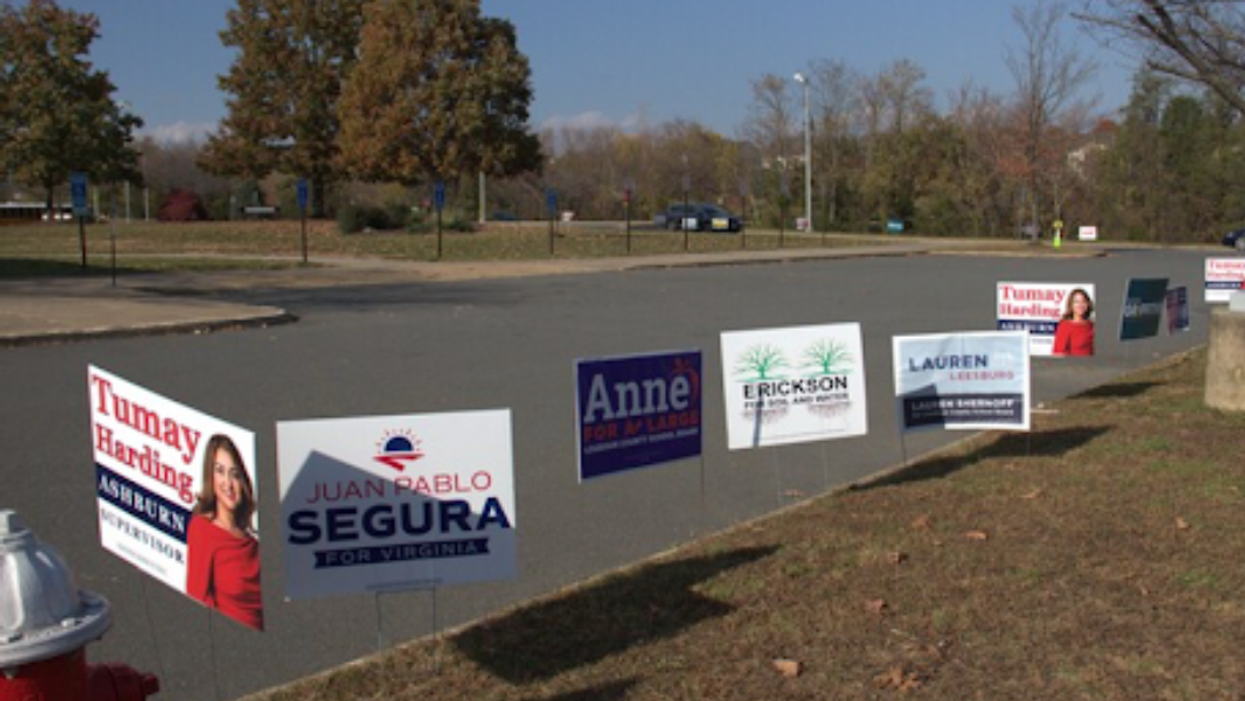Juliann Ventura is a graduate student at Northwestern University’s Medill School of Journalism and a reporter at Medill News Service, where she covers social justice.
ONE OF THREE VIRGINA REPORTS TODAY: As one of the key swing states for the 2024 presidential election, the Commonwealth of Virginia rightfully received considerable national attention. Today, we present three news stories all written by Northwestern University students participating in the university’s Medill News Servic e. We are proud to be partnering with the Medill News Service to present reporting written and produced by Northwestern University graduate journalism students reporting from Washington, D.C.
VIRGINIA– As election day in Virginia’s 31st District neared, Candice Skinker said that she became so overwhelmed with the number of negative political ads in her mailbox that she just started dumping them into the trash.
“We've been inundated with ads in the mail,” the Fauquier County resident said. “And a lot of them are negative ads that I just dump in the trash. I want to know what they [candidates] want to do or are going to do, not what they think the other guy is going to do.”
“I think they [candidates] pose as being about the issues but then as you know, there's the straight-forward name-calling,” said Barbara Pierce, a voter who works for the Fauquier County Democrats. “There are falsifications of the truth, there's exaggeration.”
Democrat Russet Perry, who won the District 31 senate seat with nearly 53% of the votes, had an ad claiming that Republican Candidate Juan Pablo Segura is “bad for women, bad for kids, and bad for Virginia.” Segura had an ad alleging that Perry lets “violent criminals walk easy.” Neither candidate responded to emails requesting their comments.
Lisa Sales, the president of Virginia NOW, a political action committee that endorsed Russet Perry, did respond to a comment request. She said she was really disappointed in the campaign ads and that this showed that there should be legislation protecting voters from misinformation and disinformation.
“I don’t know that I need to call anybody out,” Sales said. “But I think those folks who are disingenuous, know who they are, and they need to take responsibility for whoever wrote the messaging.”
Candidates in other districts also used “attack ads” in their campaigns.
Stephen Farnsworth, a political science professor at the University of Mary Washington, commented that this ad campaign strategy has been amplified by former President Donald Trump.
“I think that one of the consequences of the Donald Trump years in politics is that a lot of people think that falsities are actually an effective campaign strategy,” Farnsworth said. “And you're certainly seeing the demonization of opponents in a lot of these competitive races, including District 31.”
Farnsworth referenced The Washington Post Fact Checker’s database, which reported more than 30,000 false or misleading claims made by Trump while he was in office.
After redistricting reform was approved in 2021, District 31 became one of Virginia’s swing districts. Farnsworth said that large amounts of money are funneled into the competitive districts “that will determine the fate of the majorities in the legislature.”
In District 31 alone, Democratic Candidate Russet Perry and Republican Candidate Juan Pablo Segura spent more than $6.5 million combined on political ads– the most of any race in Virginia this past election cycle. Perry spent more than $3.7 million on ads. Segura spent more than $2.8 million.
“In really competitive races, you will see dozens of mailers going out for candidates, because there is so much money to be spent,” Farnsworth said. “But it's hard to argue that the 21st mailer is going to have much of an impact once you've already received 20.”
He said that political ads can be really effective for campaigns, but for a couple hundred thousand dollars at the most. Otherwise, candidates risk losing constituents, Farnsworth said.
“There is the risk that you just simply bombard the voters with so much material and so much falsity that they just say, ‘I don't want any part of this,’” he said. “And that's the potential risk of campaigns that spend millions of dollars.”



















Why does the Trump family always get a pass?